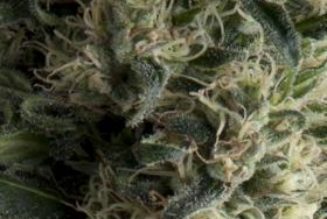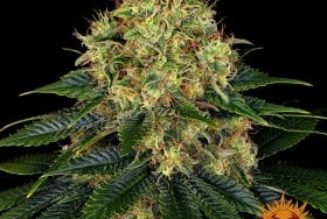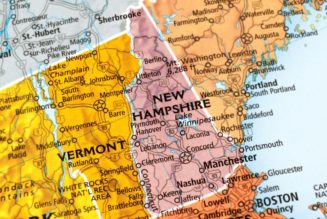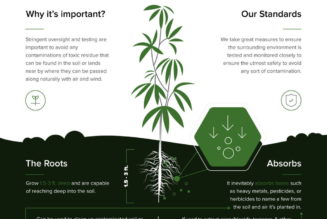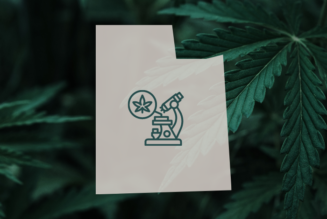Cannabis and religion occupies an essential place in many people’s lives. And for many different faiths, cannabis is considered a sacred plant. Various religions have adopted cannabis and used it in spiritual practices. In this article, we will look at the different views and attitudes towards cannabis in several religions around the world and find out whether cannabis is against your religion or not.
Place of cannabis in religion
For centuries, cannabis has held deep spiritual meaning for people of various faiths. Moreover, it is one of the plants considered sacred by mankind that has been used in religious ceremonies and other activities. After the plant was thrown into the fire or smouldering coals, people nearby would inhale its smoke clouds and feel they were in touch with their deity.
The oldest evidence of the use of cannabis for religious purposes dates back to 2700 BC. The flowers and seeds of a cannabis plant were found in the grave of a Turpan Basin culture’s shaman in western China. They had been placed in a basket and a bowl next to the shaman’s head and feet.
Famous people from the past have described the sacred status of cannabis. For example, Herodotus wrote around 440 BC about the ancient funerary rites performed by the Scythians, a nomadic people from Central Asia. What did these look like? They sat in closed tents, where hemp seeds were thrown on hot stones to smoulder.
Attitudes of major religions towards cannabis
Cannabis plants have been the cause of religious movements since ancient times. In this section, we will tell you how the plant is understood in different religions around the world.
Christianity
What does the Bible say about cannabis use for Christians? Actually, it doesn’t contain any exact information about this subject. However, the Bible does prescribe that people must follow the laws and respect those in authority over them. It also instructs its readers to avoid intoxication. This can be interpreted as permission to take hemp (cannabis with low THC content) if the law allows it, because according to studies, CBD, the main component of the hemp plant, is non-intoxicating and non-psychoactive.
The Bible also teaches Christians to accept each other’s beliefs. For example, if a Christian believes that eating a certain food is a sin, it is a sin for him to eat it, whereas other Christians without such a conviction can safely eat this food. This may be the case with cannabis as well. Some may consider anything to do with the plant a sin, while others may believe that God created this plant for our godly use.
Christians who are considering using hemp should start by checking the THC content in it. They should also seek advice from their healthcare provider. It would be wise for everyone to consider God’s plan and purpose for their lives when possibly dealing with physical or mental health issues. When someone prays for guidance, God will honour their desire to please Him in all decisions.
Islam
Cannabis also has a settled status in Islam. Actually, there is no explicit prohibition of cannabis in the Quran or the Sunnah. In Islam, there are two main positions for different products and compounds: halal (permissible) and haram (forbidden). So, according to the religion, intoxication in any form and degree is forbidden. People are advised not to take and stay far away from all products and substances that can affect a person’s mental faculties, consciousness, behaviour, actions, clarity of mind and common sense.
As scientists report, CBD, one of the cannabinoids found in the plant, is a non-psychoactive compound and cannot induce the so-called “entourage effect”, which means getting “high”. On the other hand, another of the plant’s elements, THC, has the opposite effects and is considered haram.
Considering all this information, only hemp that does not contain THC can be halal in Islam. As for the various CBD products, it’s essential to check what the purchased products are made of, just like with food or medicine.
Hinduism
According to the research, Hinduism is considered the most obvious example of using cannabis for religious purposes. Hindus used the plant in religious ceremonies as early as 1000 BC. The plant was eaten in the worship rituals of the goddess Shiva. In addition, during the Holi festival, it is consumed in a religious drink called bhang.
In the Middle Ages, soldiers often drank bhang before battle, just as Westerners would take a swig of whiskey. Cannabis has been popular in India since the earliest times and is often consumed as a drink. Nuts and spices such as almonds, pistachios, poppy seeds, peppers, ginger and sugar are mixed with cannabis and boiled with milk. Yoghurt is also used instead of milk. To this day, bhang plays a significant role in Indian spirituality and culture.
The Atharvaveda, one of the four sacred texts of Hinduism, lists cannabis as one of the five most sacred plants on earth. The text also refers to it as the “source of happiness” and “liberator”.
Currently, the Narcotic Drugs and Psychotropic Substances (NDPS) Act of 1985 governs the use of cannabis in India. While the Act prohibits the sale and use of cannabis resin and flowers, it does allow the use of its seeds, stems and leaves. In short, bhang is legal.
Buddhism
Cannabis was used in Hindu culture as early as 1500 BC, and its ancient use is confirmed in the Vedas. In general, many Buddhists accept the use of medicinal cannabis for the possible treatment of various physical and mental problems. However, the Fifth Precept is often interpreted as “abstaining from intoxicating drinks and drugs that lead to heedlessness” or “refraining from taking intoxicants”. In some other translations, the Fifth Precept refers specifically to alcohol.
The religion itself is more focused on the follower’s personal spiritual development. Although the scriptures don’t explicitly prohibit them, they do indicate that a legitimate reason is required for their use. In an interview, the Dalai Lama was asked if he supported the use of cannabis. His answer was: “No, never. Such substances are usually considered a poison, very harmful. But for specific diseases, it is sometimes used deliberately. So it depends on the doctor or the scientists. The ability to judge reality is something quite unique. Our brain is something special. So if it’s damaged, it’s terrible. So alcohol and drugs are very bad.”
So, in summary, cannabis can be used in Buddhism, but for the particular purpose of possibly treating specific diseases. In this case, the main reason is not the product one intends to take but the cause of consumption.
Judaism
Cannabis also has a settled status in Judaism. However, this issue is not so clear-cut because the answer to the question can be “yes” and “no”.
Judaism allows Jews to consume many things that are not intrinsically sacred, as part of the effort to fulfil the responsibility of maintaining a healthy body, mind and soul, and also as part of enjoying God’s bounty, even when not directly related to health issues. Furthermore, it requires a person to obey God’s commandments, take responsibility for their actions and work to create a better world. Whether recreational cannabis use fits into this Jewish description of the nature and purpose of life depends on what its effects will be. If it lessens pain in dying patients, then not only can it do so, but efforts must be made to make it legally available to them. So, in short, cannabis itself is not inherently bad or good. It must be judged in terms of its effects in creating a kingdom of priests and a holy nation.
Almost all Jewish thinkers thus are of the opinion that the recreational use of cannabis is not allowed. Only medical purposes may be appropriate in the religion.
Final thoughts
These are some of the views and opinions about cannabis as interpreted by various religions around the world. On this journey from the past to the present, we would remind you that nowadays, cannabis with high THC content (0.2, 0.3 or 1.0%, depending on the country or region) is restricted. It’s therefore extremely important to carefully check the local and international legislation applicable to the plant and only use hemp (cannabis with low THC content). Our blog articles are a great resource to learn more about different applications of hemp, so dive in deeply if you are interested in the topic.
Sources
- The Effects of Cannabidiol, a Non-Intoxicating Compound of Cannabis, on the Cardiovascular System in Health and Disease (https://www.ncbi.nlm.nih.gov/pmc/articles/PMC7554803/)
- Cannabidiol and Other Non-Psychoactive Cannabinoids for Prevention and Treatment of Gastrointestinal Disorders: Useful Nutraceuticals (https://www.ncbi.nlm.nih.gov/pmc/articles/PMC7246936/)
- Islam and cannabis: Legalisation and religious debate in Iran (https://www.ncbi.nlm.nih.gov/pmc/articles/PMC6153265/)
- History of Cannabis in India (https://www.psychologytoday.com/intl/blog/the-teenage-mind/201106/history-cannabis-in-india)
- The intoxicating drug of an Indian god (https://www.bbc.com/travel/article/20170307-the-intoxicating-drug-of-an-indian-god)
- Does your religion prohibit cannabis use? (https://nationalpost.com/cannabis-culture/cannabis-religion-use/wcm/2c9cb893-1989-4322-8eb0-87a705d69303/amp/)
- Religious use of Cannabis (https://masscann.org/education-village/peace-and-love-the-spirituality-of-cannabis/religious-use-of-cannabis/)
- The Narcotic Drugs and Psychotropic Substances Act, 1985 (https://www.indiacode.nic.in/bitstream/123456789/1791/1/A1985-61.pdf)
- Exclusive: The Dalai Lama Talks Pot, Facebook and the Pope With TIME (https://time.com/8648/dalai-lama-tibet-facebook-pot-pope/)

